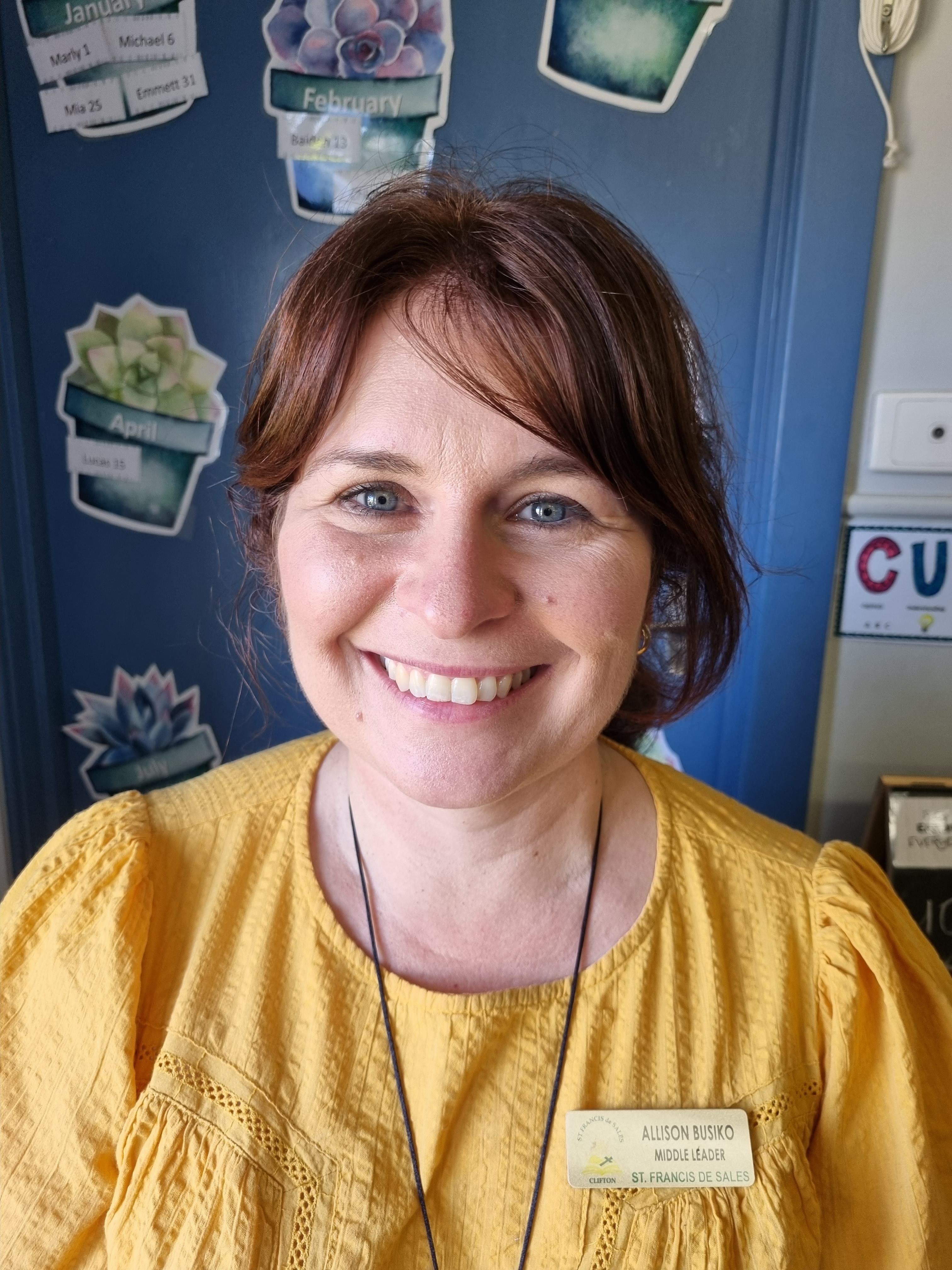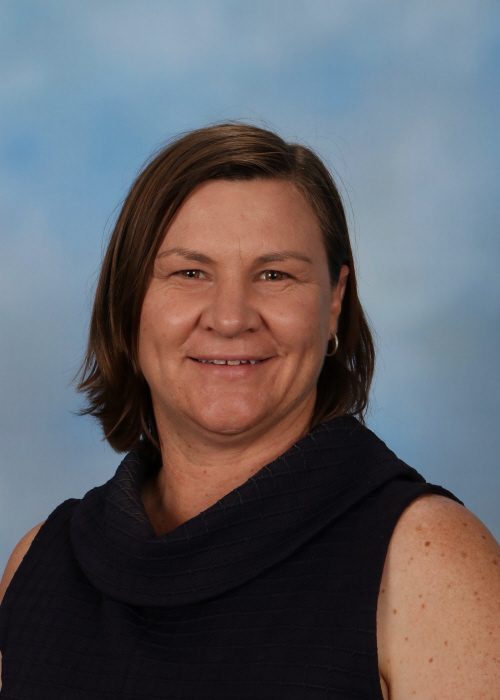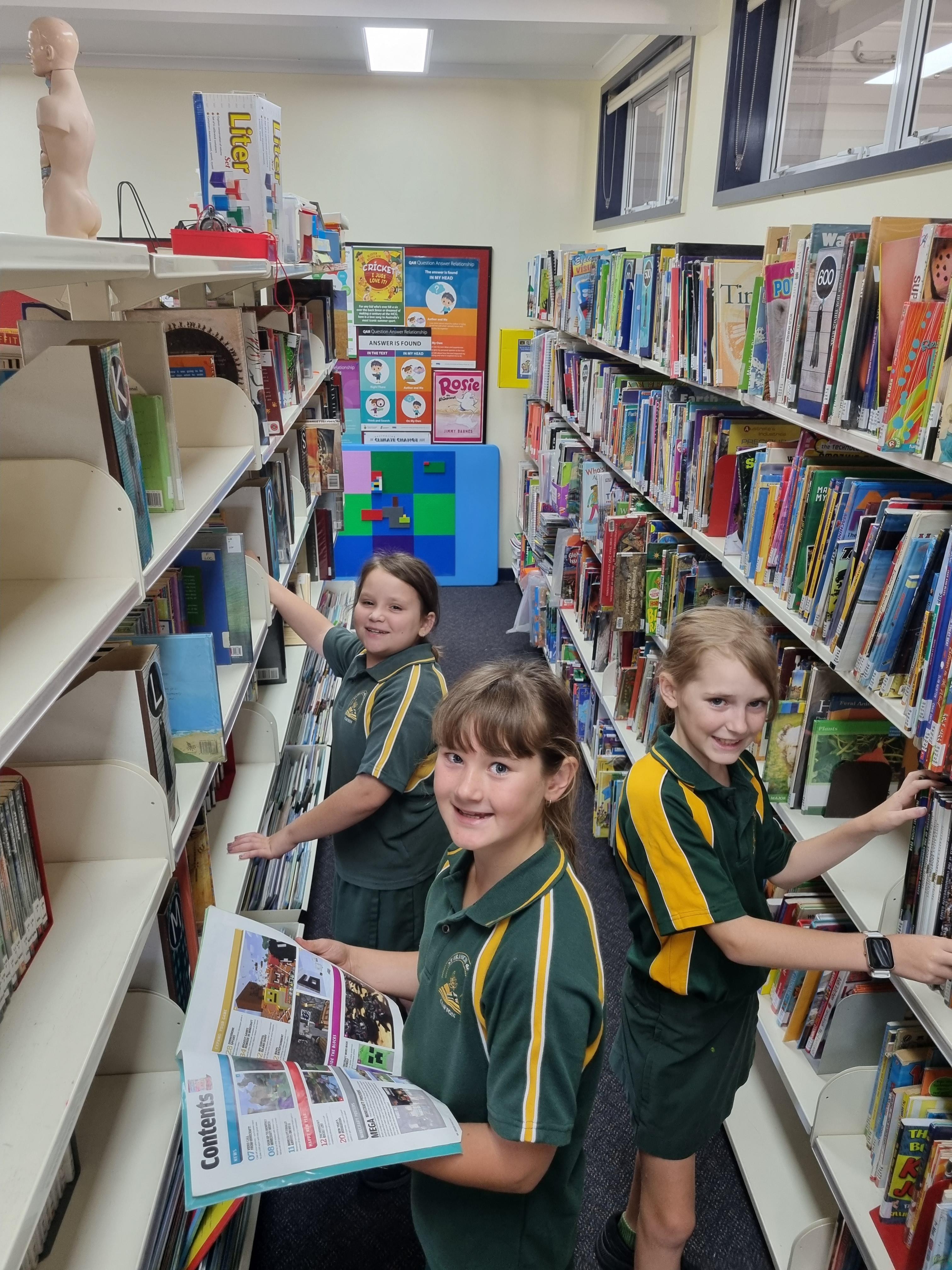Term 1 Newsletter 1st April 2022
PRINCIPAL'S MESSAGES

Did you survive?
Being the last newsletter for the term I would like to extend a very sincere thank you for a wonderful start to the year. Short in time, but big in achievements. It is only through the genuine positive partnerships that exist here at St Francis that we continue to succeed in all we do here in this fantastic school community.
I am so thankful for the continued efforts of our great staff. This Term, has seen the continuation of our writing and reading improvement strategies, the talking about our learning dispositions (qualities), engaging / fun lessons (check out the Facebook Page), cross country training, various liturgies and religious celebrations, a P&F meeting, a disco and a meal deal!!! All this just doesn’t happen. Behind the scenes, our amazing staff (and parents) go to great lengths in organising these initiatives, and for that, I sincerely commend them for their time and effort.
The feedback I have received from both teachers and parents following recent parent teacher interviews is most rewarding. There is a real feeling that each and every person wants the best for the children who attend and want the school to continue providing its unique brand of service, care and quality education.
Being a parent is a hard job, a complicated job, and sometimes a lonely job. Probably, it’s the most important job people will ever have because as their child’s first teacher, they will make a difference one way or another. However, parents here at St Francis have the opportunity to form a viable partnership with their child’s teacher, because together they have a common goal: a successful school year for each child. Teachers need to know that we are all on their side and if we aren’t, we need to be able to express ourselves as to why not.
It’s important to remember that parents and teachers are partners in helping each child achieve a successful transition to adulthood. This combined support is essential if the transition is to be a positive developmental experience for your child. A good relationship with your child’s teacher will make it easier for you to stay informed about your child’s progress across all areas of schooling and to work together if problems arise during the year.
On occasion, you might find that your teacher has constructive criticism about your child; it’s important to keep an open mind to the teacher’s comments. Neither the child nor the teacher is perfect – nor parents for that matter – so, if a problem arises, it’s important to consider both sides of the story. The outcome should be the one that helps your child succeed at school. There needs to be a sensitivity that respects the teacher as a well-trained professional and consideration that respects the parents who have special knowledge of their child.
Our teachers and support staff are dedicated and caring and want to excel in their teaching and guidance of young people. Everyone likes to be appreciated and teachers are no exception. If we continue with the “We” attitude and work with our child’s teacher, then our child will have a great school year and so will we, and, with a bit of luck, so will the teacher!!
About this time, kids begin to show the tell tale signs of weariness. Friendships are tested and resilience and persistence starts to drop. It is not only the students who start to feel the strain of a busy school term, parents do as well.
We know the amount of effort which goes into parenting. From the preparedness of each school day and school events to the after school and weekend extra-curricular activities, parents are pushed to the limit. It is at times like these that everyone, especially the significant adults in the lives of children, make a concerted effort to keep going. Don’t forget, your child’s teacher is your ally. The continuation of open communication and support is vital for the ongoing emotional health of your children.
It is vital that parents and teachers continue to promote persistence by encouraging children to keep going and not give in at the slightest hurdle or difficulty. The ability to persist at a task and see it through to the end is one of the most import success attributes that you can develop in a child. There are numerous times in the school year where children must persist rather than give in. A young child learning to tie their shoelace must persist. Students need determination to complete set tasks. Children need to be able to persist when work gets tough, life seems hard or relationships are not so positive. It is vital that they learn to work through difficulties and hang in their when things don’t go their way. Some children are naturally more predisposed to persist than others. They have a determined, even competitive, streak in their temperament that doesn’t allow them to give in.
Research has shown that persistence is one temperamental factor that can be improved over time. Parents and teachers can develop persistence in children and also impede its development by making life too easy for children so that they don’t have opportunities to persist or hang in there.
Parents can be sounding boards for their children’s gripes, but they should show confidence in their ability to cope and get through periods of difficulty. “You Can Do It” is far more powerful in terms of promoting an attitude or persistence than “if it’s a little too hard, then try something else.”
Let children know that there is a direct link between effort and success. In fact, they need to learn that by giving effort they will more than likely experience more success. The ability to persist in the face of difficulties maybe an old fashioned quality but it is one of the best success attributes that children will ever develop. If you detect a drop in persistence, try these practical strategies to rejuvenate effort levels:-
Use and display a vocabulary for persistence. For example, “Hang Tough”, “Work Hard”, “Hang in There”.
Catch them out when they stick at a task. Similar to the effectiveness in catching them out and acknowledging when they make good choices in behaviour. Let them know when they have been persistent and remind them their efforts will pay off. Remind children when they experienced success by hanging in there. Let them know if that their persistence has paid off before and it will happen again.
Talk about hard work with your children. Tell them about family members who work hard. They need to understand that to be successful they need to do things that are not always fun and easy. While it would be good if all work and learning was fun, in reality, this is not always the case.
My best wishes for a safe and Holy Easter season to you and your families. Take the time to be peaceful and prayerful as we approach the holiday period and enjoy ‘down-time’ with family and loved ones. Intentions such as peace and harmony will focus us as we attend Easter Masses and worship services. We have had a challenging yet productive term. Let’s enjoy the Easter break and look forward to renewing the positive relationships that exist across our school community in Term 2.
Pupil Free Days
A reminder that Tuesday 19th April is a pupil free day for all Catholic schools in the Toowoomba Diocese. The first day of Term 2 is Wednesday 20th April.
The next Public Holidays are:-
- ANZAC Day – Monday 25 April – Public Holiday
- Labour Day – Monday 2 May – Public Holiday
Chasing a Tuckshop Convenor:
St Francis is looking for a Tuckshop Convenor for 2022. If you know of or are interested in the position, please let Mr Red know.
Thanks for reading,
Cheers,
Mr Red
CURRICULUM COORDINATOR

Allison Busiko
Vocabulary
This year at St Francis, one of (our many) goals is to improve our writing. The words selected by the students can help turn a good piece of writing into a fabulous one.
‘The quality of parent-child interactions is one of the biggest factors influencing vocabulary, so it’s vital to talk to your child and expose them to different words.
Here’s how…
Help them build their vocabulary! Kids with a large vocabulary understand more of what they read and hear. So big vocabulary=big learning! Exploring new words on a regular basis is one of the best ways parents can support learning at home.
Here are some ideas you could try at home:
- Notice new words when you’re reading or listening. Talk about the importance of a large vocabulary and make an effort to learn new words.
- Relate words to real life experiences. Make them meaningful and make connections with new vocabulary.
- A lot! Read all sorts of books, signs on the wall, directions, recipes… A wide variety of reading material will expose kids to a wide variety of new words.
CLASS NEWS

Prep/Year 1
What a busy last two weeks of the term it has been. In religion, we have listened to, viewed and read accounts of the Easter Story. We recognise that Easter is a Holy celebration. Students created artwork and booklets around Holy Week.
In shared reading, we read stories around the theme of ‘Bears’ and learnt strategies that ‘good readers’ use to help them decode words. Students are being encouraged to use these strategies in guided reading sessions and at home during home reading. The big books ‘Where’s My Teddy’ by Jo Alborough and ‘We’re Going on a Bear Hunt’ by Michael Rosen were voted as two of the favourite stories read.
In writing, students wrote sentences in response to the bear books we read in class. After several modelled lessons, Year 1 had their first go at editing their own writing. They focused on punctuation and checking their sentences made sense. We will continue to work on this process next term.
In maths, we used hands on material, songs and dice games to learn about addition, subtraction and ordinal numbers.

Year 2/3
Many thanks to everyone for making time to catch up with us for the parent-teacher interviews, either by phone or in person. It is certainly beneficial for us all to have time to discuss the progress of each child. If you wish to catch up at any additional times throughout the year please inform us via email and we shall arrange a meeting that is suitable for all involved.
This term has certainly been a challenging one with the Covid- 19 restrictions and the comings and goings of all the students as everyone meets these requirements. The students must be commended for their resilience and positive attitude to learning during this term.
With a focus on writing in the classroom the children have certainly demonstrated some fabulous progress with the pieces they have written. The use of capital letters and full stops is an important element of early years writing skills as it helps with the fluency and comprehension of the written and the read word. This is something we are consistently reminding our writers and readers.
Our science focus this term has been discovering how we can determine if something is living or non-living. Living things can be grouped according to their observable features also. Animals may be vertebrates (with a backbone) or invertebrates (without a backbone). Other classifications may include grouping them according to what they eat, where they live or how they move.
Don’t forget the cereal boxes for next terms health unit.
Next term we will be leading the Anzac Day and the Mother’s Day liturgies. Check the school calendar and newsletter for dates and times. The children enjoy your attendance at these events.
We wish you all a restful and healthy holiday break. May your Easter weekend be a peaceful weekend with family and friends before we begin Term 2 on Wednesday April 20. Take care.

Year 4/5/6 News
This term has flown! In the classroom this week, we have been very busy in all areas. In Religion, we compared the Easter story from two different authors of the Bible – Matthew and Luke. The students worked together to read the Bible and they discovered what elements were the same and what was slightly different in the retelling of the story. We then had a great discussion about what was happening during this time.
In Spelling, we have been learning our spelling rules. This fortnight, we looked at three rules:
- The student learnt that English words do not end in ‘i, j or v’ and this is one of the reasons you will find the letter ‘e’ placed behind these letters at the end of a word.
- We also looked at another job of e – each syllable needs a vowel. This applies to words such as apple.
- Lastly, we looked at the ‘CG’ rule. When an ‘e, I or y’ is after a C or a G, it makes those letters say a S or a J sound.
We have now wrapped up or science unit about light. The students all worked hard to make the light reflect out of their mazes.



In maths, we have begun working on multiplication and fractions. The Year 5s and 6s are learning two methods for multiplication, the Turtle and the Lattice method. What are these methods? Here are some videos to explain:
The Turtle Method
https://www.youtube.com/watch?v=cuidv3tlUP4&ab_channel=901Math
The Lattice Method
https://www.youtube.com/watch?v=tbAMXOA2kOM&ab_channel=ventanachannel
Have a great holiday break!
LIBRARY

Library News
Today in the library, we had our first ‘Just one more page’ Café … an opportunity for the readers amongst us to sit quietly, enjoy a bite to eat, and read a book. While we were small in number, we were big on enthusiasm! We all agreed at the end of the break, that we should definitely do it again!
Mrs Trudi Burgess
Teacher Librarian.
SPORT NEWS

Sport
Cross Country Carnival
Due to prolonged wet weather and unviability of the Clifton Golf Course this week, the carnival will be postponed to Term 2. When a viable date comes up, we will inform you of this as soon as possible. We will have this on our oval.
GUIDANCE COUNSELLOR
Jennifer Fenn
From the Fathering Project
The below article, written by Dr Bruce Robinson, shares some positive messages on the importance of dads’ involvement in education.
Supporting school learning at home
When dads support school learning at home, this shows our kids that we truly value education and the school.
Your job as a parent is to encourage them, support them and challenge them to learn and do their best. If you can instil in them the mindset that learning is a process, that is positive and enjoyable, they will grow up to be lifelong learners who thrive on challenges.
Evidence – Did you know?
- Fathering involvement in educational activities with their children is associated with improved educational outcomes for all students.
- Children at all ages with fathers interested and involved in their learning have a clear academic advantage.
- Children do not stop needing their fathers because they get older, or because lives get busy.
- You don’t have to be strong academically yourself to have an impact on your child’s education. Evidence shows you just have to be supportive and positive about learning.
Top tips
- Read with your child from an early age and encourage a positive attitude to learning from reading – both books and online.
- Promote a positive mindset in your children to help them see the benefits and enjoyment that can be found in learning and improvement.
- Don’t put too much pressure on them. Encourage them to be as good as they can be and help them plan how to improve.
- Be willing to help with homework, even if that just means asking them questions.
- Let them be independent learners and be there to support if they want to do the home learning themselves.
- Encourage them to see mistakes as an important part of the learning process and help them to see how to use their mistakes to learn.
- If homework is causing stress or arguments, put it aside and take a break. Try again later and if there are still problems, contact the teacher to discuss solutions.
Dr Bruce Robinson is the founder of The Fathering Project – Your support of learning impacts your child’s results at school - The Fathering Project
If you or your children are struggling
Kids can call Kids Helpline on 1800 551 800 or Youth Beyond Blue on 1300 224 636 or you can contact your child’s GP. If you are struggling, call Lifeline on 131 114, or Beyond Blue on 1300 224 636.
STUDENT PROTECTION CONTACTS
Feeing Safe- All students have a right to feel safe and be safe.
If you are concerned about any form of abuse that is immediate, you should call 000. A significant risk or harm of a student, whether or not you have formed this belief on reasonable ground, should immediately be raised with one of our Student Protection Contacts.

ADMINISTRATION

School Fees:
We do recommend the setting-up of a direct debit facility to pay regular amounts into the school account. This alleviates overdue bills.
SCHOOL Bank Details
BSB: 064786
A/C: 100023789
Reminder: All P&F payments & Uniform payments are paid to a different bank account NOT the school account.
P&F Bank Details
BSB: 084610
A/C: 508684159
